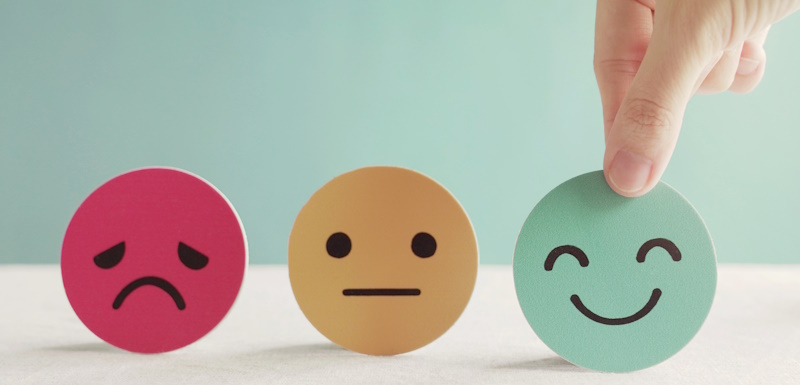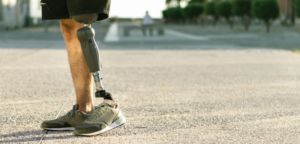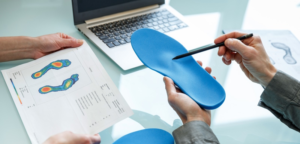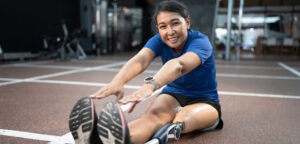Overcome Emotional and Psychological Challenges Through the Use of Advanced Prosthetics
Losing a limb is a profound and life-altering experience that extends beyond the physical challenges. It also brings about a unique set of mental and emotional hurdles that can hinder quality of life.
In this journey of adaptation, advanced prosthetics play a pivotal role, not only in restoring mobility, but also in addressing the mental health challenges that accompany limb loss. In this blog, we’ll explore some of the main mental health issues tied to limb loss. We will also examine the numerous emotional and psychological benefits that custom prosthetics afford wearers.
The Mental Health Effects of Limb Loss
Undergoing amputation is one of the rare medical procedures that results in both physical and psychological challenges. Amputees who have a leg removed, for instance, spend their first year healing and learning to adapt to their custom prosthetic limb.
On top of that, amputees must navigate all the mental health challenges associated with limb loss, including:
- Body image issues.
- Difficulties coping with loss.
- Social withdrawal and self-isolation.
- Fear of societal judgment.
- Feelings of depression, anxiety, anger, and panic.
- Suicidal thoughts or feelings.
How Custom Prosthetics Address Mental Health Issues
No prosthetic will ever measure up to a person’s original limb. However, the spirits of many amputees lift when they find out just how advanced the field of prosthetics has become. Advanced prosthetics facilitate mobility, function, and can even be designed to resemble your original limb through the use of silicone exteriors that look like real skin. This lifelike appearance is just one of the many benefits of custom prosthetics.
Restoration of Identity Through Personalization
One significant contribution of prosthetics to mental health is the ability to personalize the artificial limb. Customization allows individuals to express their unique identity, whether through lifelike appearances or vibrant designs. The process of choosing and adapting to a prosthetic becomes a journey of self-discovery, fostering a positive relationship between the individual and their prosthetic limb.
Building Independence and Autonomy
One notable challenge amputees face is the sudden restriction on their physical abilities. Imagine waking up one day unable to walk, drive a car, or play basketball in the driveway with your kids. To make things even more difficult, amputees require assistance for everyday tasks, which can stoke negative feelings surrounding dependency.
Advanced prosthetics empower individuals by restoring a sense of independence. The ability to perform daily tasks, walk, run, or engage in recreational activities enhances autonomy. This newfound freedom plays a crucial role in reducing feelings of helplessness, contributing to a positive mental outlook and an increased sense of control over one’s life.
Overcoming Social Stigma and Promoting Inclusivity
Amputation is a significant change in a person’s life, which can stir up feelings of dread or anxiety when thinking about social interactions. Interacting with friends, family, or co-workers can become a source of stress for those with limb loss due to societal perceptions and biases.
Advanced prosthetics can serve as conversation starters, opening a dialogue about resilience and adaptability. As the visibility of prosthetics increases, so does societal acceptance, fostering a more inclusive environment and reducing the stigma surrounding limb loss.
Redefining Perceptions of Beauty and Normalcy
Self-acceptance remains one of the biggest challenges amputees face. It can be easy to negatively label oneself as not normal or not good enough. What individuals must understand is that they can choose to not let their limb loss define them. Granted, losing a limb knocks many people down, but through personal resolve and medical innovations, they can overcome life’s challenges.
Prosthetics challenge conventional notions of normalcy. They can become symbols of strength, perseverance, and the ability to redefine one’s own standards of beauty. By showcasing that beauty extends beyond conventional physical attributes, prosthetics contribute to reshaping societal perceptions and fostering a more inclusive definition of normalcy.
Supportive Communities and Peer Mentorship
Engaging with others who have experienced limb loss can be a powerful aspect of the mental health journey. Prosthetic communities and peer mentorship programs provide spaces for individuals to share experiences, seek advice, and receive emotional support. This sense of fellowship reduces feelings of isolation and reinforces the understanding that one is not alone in their journey.
Addressing Phantom Limb Pain with Technological Innovations
The mental health impact of phantom limb pain, a sensation experienced in the missing limb, cannot be overlooked. Advanced prosthetic technologies, such as myoelectric systems and sensory feedback, contribute to addressing phantom limb pain, providing relief and improving the overall well-being of individuals.
Find Prosthetics Near You That Foster Improved Mental Health and Mobility
Prosthetics transcend their role as functional replacements for lost limbs; they become instruments of empowerment, resilience, and mental well-being. By addressing the psychological aspects of limb loss, prosthetics contribute to a holistic recovery, guiding individuals toward a renewed sense of self and a future filled with possibilities. When combined with the support of loved ones and members of the amputee community, custom prosthetics can serve as the x-factor that promotes a sense of well-being and self-acceptance.
The best way to find prosthetics near you is to get in touch with a local prosthetist. Not only are these individuals highly skilled in the fitting and customization of prosthetic limbs, but they can also help you navigate the mental health challenges associated with limb loss.
Think of your prosthetist as your own personal guide to adapting to your new way of life and regaining your mobility. If you require mental health resources or support, they can point you in the right direction.







